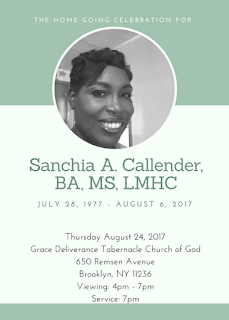Resisting the "Taint" of Autism
While I haven't yet come across objections to doing away with some of the other diagnostic labels such as PDD and PDD-NOS there seems to be some criticism of the changes with respect to Asperger's Syndrome. The one criticism that I find most irritating is the complaint that this change will "taint" Asperger individuals with the label of autism. The complaint rears its ugly head in this NPR story, Asperger's Officially Placed Inside Autism Spectrum, as well as the comments.
Now as a parent of autistic children I'm sure you can see the problem I have with this particular objection to the changes in the DSM. It is that perceived "taint" that has been attached to autism. There is nothing wrong with being autistic. That taint that some fear has nothing to do with who autistic people are or what they can accomplish. It has everything to do with looking down on people who are different, unworthy others.
Objecting to the proposed DSM changes on the grounds that one does not want to be associated with those autistic people only serves to reinforce an ugly stereotype of autistic individuals. Rather than play along with the stereotype that autistic people are stupid, helpless or otherwise undesirable this is an opportunity to push back against the prejudice. There is a wide range of autistic ability that includes those who are currently diagnosed with Asperger's Syndrome. It covers those who can fake "normal" well enough to escape close scrutiny and those whose intelligence is valued enough for "normal" folk to over look their quirks. It covers those who the thoughtless and unimaginative call "low functioning", mostly because they don't utilize spoken language, but are anything but "low functioning".
Roy Richard Grinker, an anthropologist who studies the anthropology of autism, writes in an op-ed column titled, Disorder Out of Chaos, in the New York Times that,
Almost everyone with Asperger’s also fits the profile of the more classic autistic disorder. Indeed, in the current diagnostic manual, a child who has good language acquisition and intelligence qualifies as autistic if, in addition to having restricted interests and problems with social interactions, he has just one of the following symptoms, which are common among children with Asperger’s: difficulty conversing, an inability to engage in make-believe play or repetitive or unusual use of language. Even the best available diagnostic instruments cannot clearly distinguish between Asperger’s and autistic disorder.
People who now have a diagnosis of Asperger’s can be just as socially impaired as those with autism. So Asperger’s should not be a synonym for “high functioning.” Likewise, people with autism who are described as “low functioning,” including those without language, can have the kinds of intelligence and hidden abilities that are associated with Asperger’s — in art, music and engineering, for example — and can communicate if given assistance.
Moreover, large epidemiological studies have demonstrated that mild symptoms of autism are common in the general population. In particular, scientists have found that family members of a child with autism often exhibit isolated autistic traits. With autism, as with many medical diagnoses — like hypertension and obesity — the boundary lines are drawn as much by culture as by nature. Dividing up the workings of the mind is not as neat and orderly as categorizing species.
I've long held the opinion that autism is far more common than anyone currently realizes. Given the frequency with which isolated autistic traits occur in the population I'd say that we are all a little bit autistic. So the "them" that some do not wish to be associated with is more like an "us".
Left Brain/Right Brain also discusses the proposed changes to the DSM.


Sam, this is an awesome post from the heart. Good grief, "tainted" is a word I didn't think I'd hear from inside the spectrum. What a slap in the face to all of us with "Autistic" children. That's exactly why I'm glad they will put the spectrum under one umbrella.
ReplyDeleteI think this kind of thing is why I have always been uncomfortable (to put it mildly) with the low/high functioning distinction. To use a biblical analogy it always reminds me of the guy who walked into the temple and started boasting about how he was so much better than all those other lowly sinners (Luke 18: 9-14). I never want to be that guy.
ReplyDeleteAn excellent post. This is also an added bonus to Asperger's being merged into Autism; in a lot of areas, Asperger's is not approved for assistance, supports and accommodations. By getting rid of the Asperger's diagnosis and replacing it with Autism, more people will be now qualified to get the help that they need!
ReplyDeleteI also think that some parents are scared that because their children are going from "superior" Asperger's to "disabled" Autism, that their children will be automatically dumped into special ed programs that are not beneficial and even harmful to their children. Of course, this would not be the case if all accommodations, IEPs, etc, are need-based, not label-based.